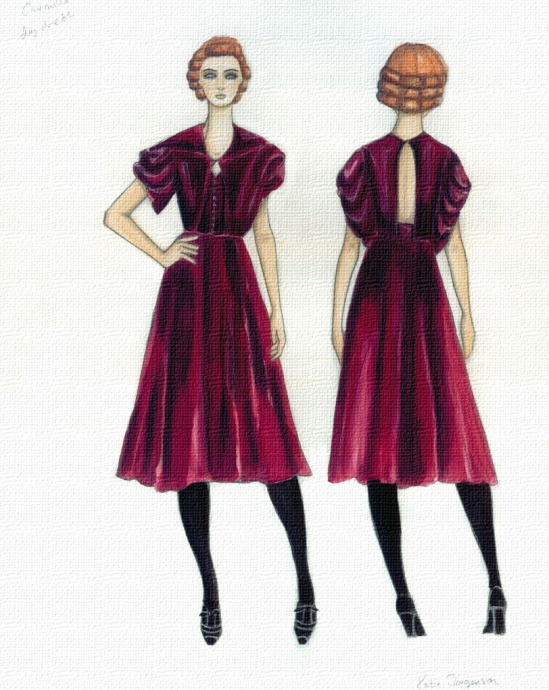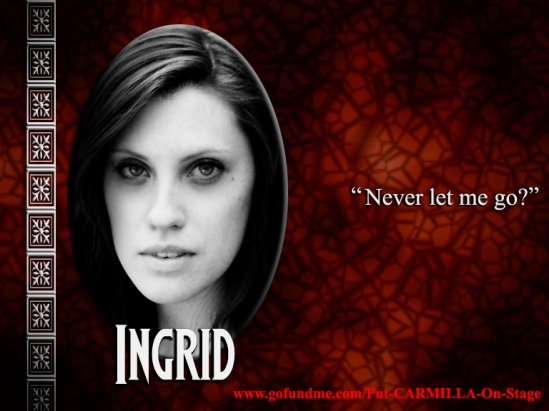GK moderates We The Infected, dedicated one of the most exciting vampire novels in years, Let The Right One In by Jan Alvide Lindqvist. A few months ago he interviewed the writer of this play about Carmilla and all sorts of things related to same:
You’ve had a long career in theater and a long love for this story – Carmilla. What caused you to write this play now? Was there some tipping point? Has this been something you’ve been working on – at least in your head – for a long while?
In a way, I’ve been trying to write this for over two decades! Or more! My first meager attempts at writing a play version go back to the late 1980s. But within the last five years I’ve rediscovered live theater in a big way by starting to review performances for my blog. And at the same time I’ve been writing more often than in years and years. With the upsurge of interest in vampire stories, just seemed inevitable I’d start work on a play version once more–but this time with less baggage, more skill and insight. Comes with age, I suppose. And tears. For example, when I first started writing Carmilla back in the 1980s I’d never lost anyone to death. Since then, I’ve lost both parents and a woman I loved. That tempers you, like a blade.
The play has an intriguing presentation in that the central character, Laura, is on stage in, well, two time periods at the same moment. I’m not sure of how to explain that or what the theatrical term for it might be. How did you come upon this – is this something you’ve seen done elsewhere – and do you see any risks for this will might come off?
Actually, I felt more-or-less inspired by Peter Shaffer and his his plays Equus and Amadeus, both of which do something similar. Quite simply, a character tells what happened, and events are acted out on stage to demonstrate. The added factor in my play is that the narrator (Laura) speaks to a specific other character (Captain Martin) with an agenda of his own. We see what happens, but we also see what Laura says happens–they don’t always match up. And we see Captain Martin’s reaction to same. When think about this kind of “flashback” isn’t so odd. Look at the Mrs. Lovett telling Sweeney Todd what became of his wife! Or for that matter Thornton Wilder’s Our Town. But having the narrator as part of events, that comes from Shaffer.
How do you find the process of launching into a play, as a producer? You are the author here, as well, so that must play into it. Is it all-consuming, keep you up nights – or have you a means for keeping it from running you life for the next months?
Ha! The fact is, preparing everything proved more thought- and time-consuming so far. What helps most of all is that I’ve got help in a handful of folks aiding me, and the fact I spent so much time in preparation. Especially the last! In fact, I’d say that was key to any success we achieve!
Do you have a solid idea of what you want to do for sets, props, layout and lighting – or is this something that evolves as the play moves from the drawing board, through rehearsals and meetings and eventually to opening night?
Generally yes, but it will evolve. Always does. For example, we only recently decided that to highlight the historical background of events–Austria joining the Reich on the eve of WW2–to pretty much keep to the colors of the Nazi flag. Shades of black and white mostly, with specific dashes of bright blood red. Someone involved in the production wanted to somehow highlight that aspect of it.
And, of course I have to ask, is there any chance of you making an appearance on stage for Carmilla?
Only if something goes terribly wrong and I have to fill in one of the parts!












